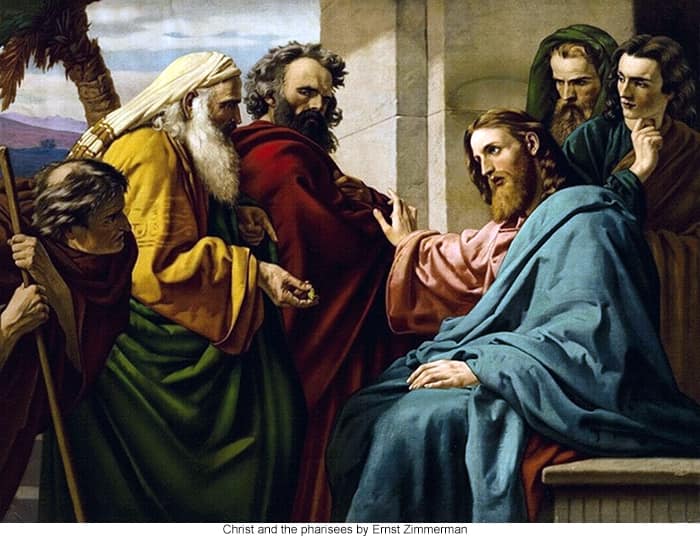 Gospel of 14 October 2020
Gospel of 14 October 2020
Wednesday of the Twenty-Eighth Week in Ordinary Time
Luke 11:42-46
You overlook justice and the love of God
The Lord said to the Pharisees: ‘Alas for you Pharisees! You who pay your tithe of mint and rue and all sorts of garden herbs and overlook justice and the love of God! These you should have practised, without leaving the others undone. Alas for you Pharisees who like taking the seats of honour in the synagogues and being greeted obsequiously in the market squares! Alas for you, because you are like the unmarked tombs that men walk on without knowing it!
A lawyer then spoke up. ‘Master,’ he said ‘when you speak like this you insult us too.’
‘Alas for you lawyers also,’ he replied ‘because you load on men burdens that are unendurable, burdens that you yourselves do not move a finger to lift.’
Reflexion
Like an Old Testament prophet, our Lord now pronounces a series of curses or warnings of impending judgment, three directed against the Pharisees and three against the scribes. Some would speculate that He would have stopped with the Pharisees, if a scribe had not opened his big mouth in defence of the Pharisees.
The first woe denounces the Pharisees for focusing on slight matters such as paying tithes on each type of herb but neglect weighty matters such as justice and love for God. The same could be said of our generation. Some of us can be so outraged by minor infractions of our neighbour but seem to tolerate the most grievous of sins without expressing any opposition.
In the second woe, our Lord warns them about taking pride in status by seeking the seat of honour in synagogues and delighting in public greetings. Instead of pleasing God, every good or religious deed of ours becomes a performative act, hoping to elicit the approval and praises of others. Sounds familiar?
The third woe is full of irony. The Pharisees, so careful to avoid becoming ritually contaminated, are in reality the ones who contaminate others, like graves that render unclean those who touch them. Some of us end up leading others into sin by our despicable example.
When one of the scribes, scholars of the Law, take umbrage at our Lord’s scathing words, feeling the sting himself, his remarks earned him and the scribes three more woes directed against them. We only get to hear the first today. The other two are read in tomorrow’s reading.
This first woe against the scribes chastises them for the heavy burdens they impose on people but do not lift a finger to help people fulfil the laws. They forget that those who teach in the name of God must also be ready to assist and accompany those whom they teach.
We recognise, of course, that our Lord directs these warnings not only to the Pharisees and scribes, but to us as well. In a world where political correctness often dictates that Truth should be sacrificed at the altar of people’s feelings, statements like these appear to be mean and cruel. It was once universally accepted that we should get angry if anyone were to tell us a lie. But today, if you want to get someone angry, just tell them the Truth.
These hard teachings of our Lord directed at those who were already antagonistic to Him, were not meant to incensed them further but rather, like anywhere else in the gospel, an invitation to repentance. There can be no conversion, if we keep telling people what they want to hear. There is hope for conversion, if we have the courage to tell people what they need to hear, even if this means risking losing their support and friendship. It is better to risk insulting someone by telling him the truth, for the goal is not to massage his ego but save his soul.
